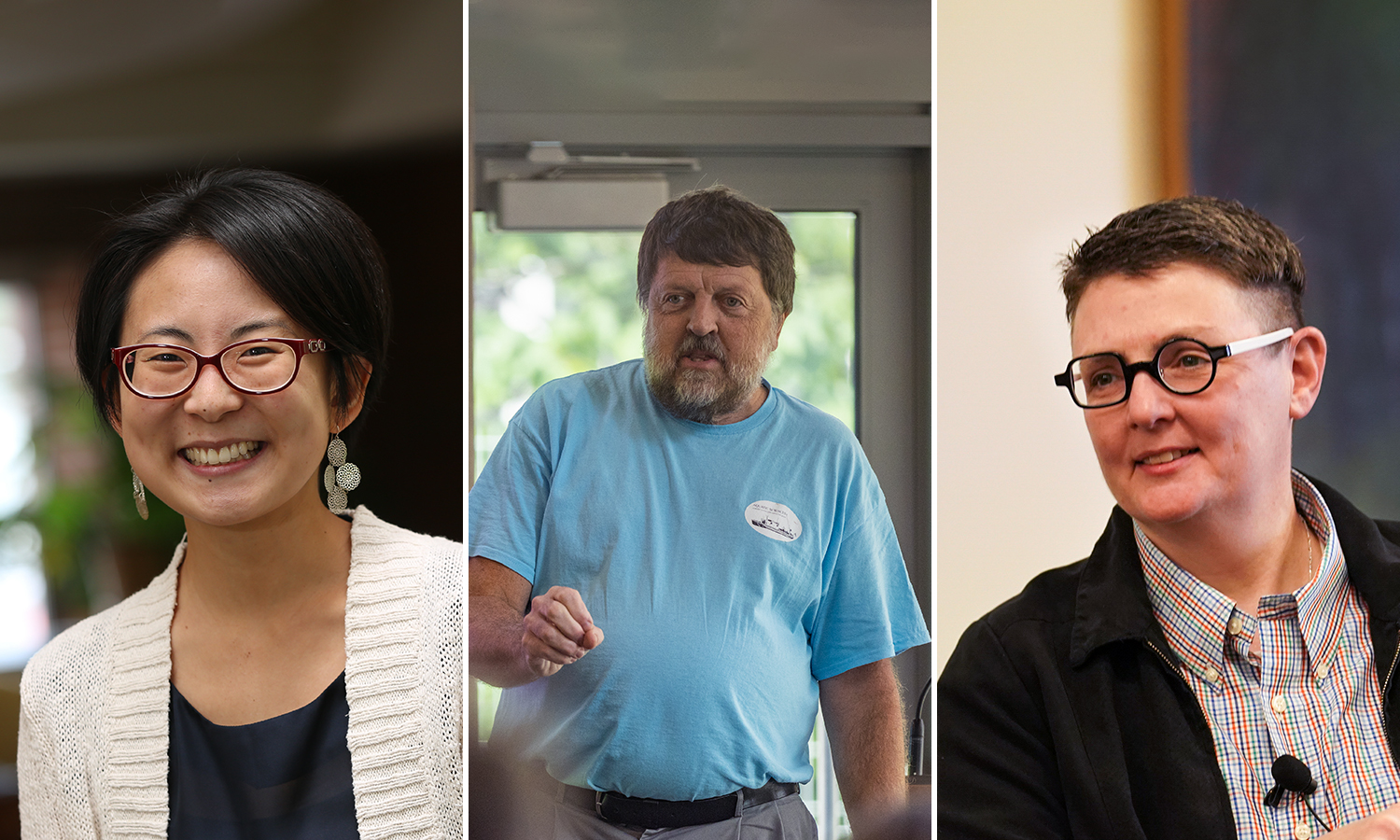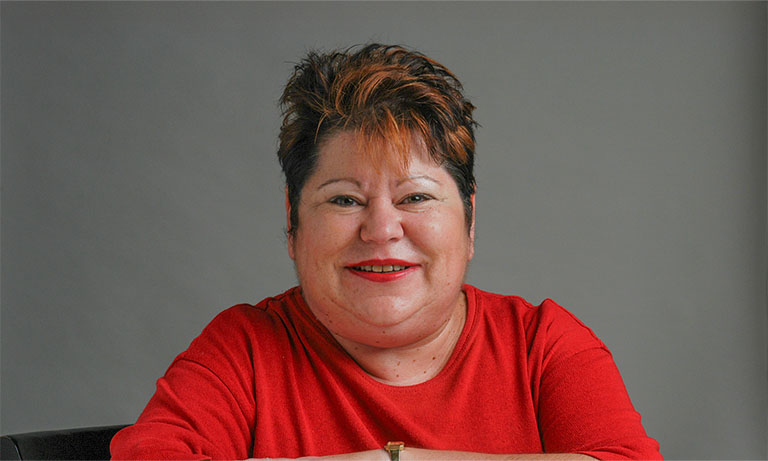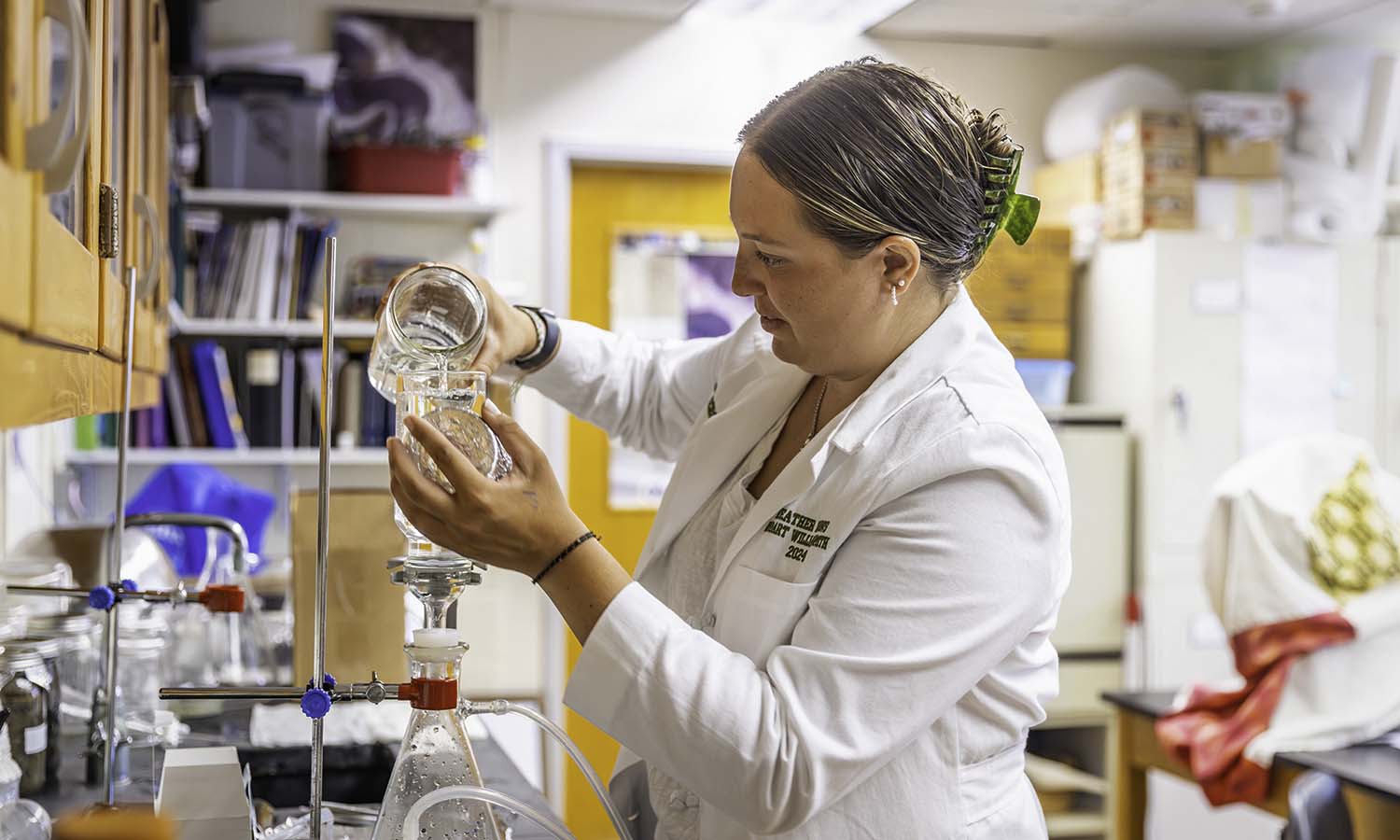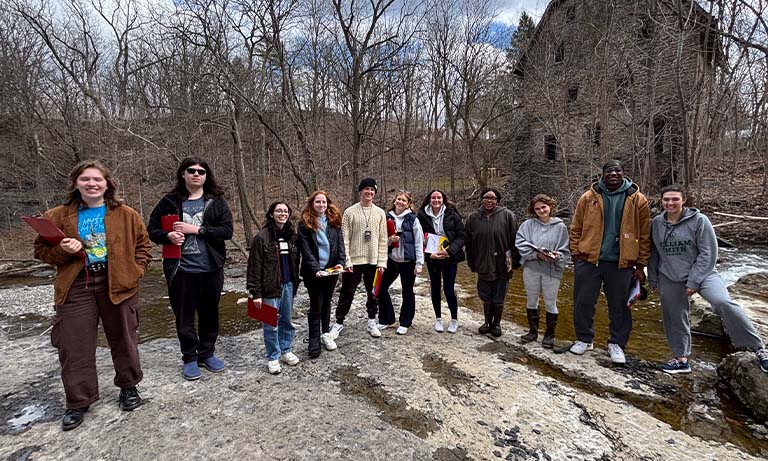
HWS News
8 August 2023 • Faculty • STEM Annual Prizes Recognize Exceptional Professors
Hobart and William Smith faculty recognize their own with prizes for service, teaching, and diversity and inclusion.
Associate Professor of Media & Society Rebecca Burditt, Professor of Chemistry Christine de Denus and Professor of Environmental Studies John Halfman are the recipients of the 2023 Faculty Prizes. Based on the recommendations of fellow HWS faculty members, the Committee on Faculty Research and Honors selected Burditt, de Denus and Halfman for their respective contributions to service, diversity and inclusion and teaching.
“I invite our campus to join me in extending heartfelt congratulations to our outstanding faculty award recipients: Professor Burditt, Professor de Denus and Professor Halfman. Their commitment to excellence in service, belonging and teaching is truly inspiring, and their contributions to our academic community have been immeasurable. We are privileged to have them as colleagues and role models for our students,” says Provost and Dean of Faculty Sarah Kirk.
Burditt is an accomplished scholar whose research focuses on media and culture. Her expertise informs her work with students and the broader community, whether she is organizing public film screening programming at the Smith Opera House, leading the Behind the Scenes career experience program in New York City or serving on campus committees. Her service to the Colleges and her professional community spans directing Honors projects, mentoring graduate students through the Society for Cinema and Media Studies and offering context for film screenings at the George Eastman Museum’s Dryden Theatre. Burditt, who joined the HWS faculty in 2014, teaches courses on global musicals, media theory and commercial culture. She holds a Ph.D. from the University of Rochester, a B.A. from Williams College and is a member of the Society for Cinema and Media Studies and the Popular Culture Association.
As her colleagues noted in her citation: “The commitment and care that she brings to each of these varied roles is widely admired. Becky has made a significant impact on our campus and Geneva communities…. She is an extraordinary colleague, programmer, mentor, and friend, and we are thrilled that we have the occasion today to draw back the curtain on the work she does for us all and to celebrate her like the star she is.”
De Denus joined the faculty in 1999 and has propelled the Colleges’ programs and resources for diversity, equity and belonging. An organometallic chemist, de Denus teaches introductory, organic, inorganic, structural analysis and forensic chemistry as well as first-year seminar courses. In addition to her teaching duties, she has devoted herself to building a diverse campus community, serving as the Director of the First-Generation Initiative since 2016 as well as a mentor to the Posse 8 cohort. She has been deeply involved in efforts surrounding Title IX and Bystander Intervention trainings, Division III athletics and LGBTQIA+ education and policy changes. She has served as a diversity liaison and an ombudsperson, and collaborated across departments and offices to implement important changes regarding health care coverage for members of the LGBTQIA+ community, all-gender restrooms in campus buildings and preferred name capabilities in PeopleSoft. De Denus earned her Ph.D. in chemistry from the University of Manitoba and her B.S. in chemistry from the University of Winnipeg, and she spent two years as a post-doctoral fellow at the Pennsylvania State University conducting research in polymer chemistry. In 2022, the faculty recognized de Denus’s contributions to the HWS community with the Faculty Award for Service.
As de Denus’s colleagues noted in her award citation, she has “worked tirelessly to make HWS a safer, more welcoming space for all.… Perhaps the most impressive thing about [de Denus] is that she sees her students and her colleagues as three-dimensional human beings with needs for care, friendship and safety. She takes her role as mentor seriously, offering much needed support and advice.”
Halfman, who joined the Hobart and William Smith faculty in 1994, teaches in the Department of Geoscience and Environmental Studies Program. He is also intimately linked with the creation and development of HWS’ Finger Lakes Institute, further entwining academics and student opportunities with important regional research. His courses engage students in water-related fields, including topics such as environmental hydrogeology, limnology, fundamentals of GIS, remote sensing and energy, developing classroom understanding and hands-on fields experience in tandem. A highly respected and widely published scholar, Halfman has devoted much of his research at HWS to the Finger Lakes region, collecting limnological and hydrogeochemical data to investigate records of environmental change. His scholarship — analyzing of the hydrogeochemical impact of zebra mussels on the lakes, the source and fate of pollutants in local watersheds, and water quality throughout the region — frequently features student coauthors. Chair of the Colleges’ Aquatic Science program, Halfman holds a B.S. from the University of Miami, an M.S. from the University of Minnesota and a Ph.D. from Duke University.
“A wonderful person and…a hall-of-fame teacher,” Halfman “approaches his job with joy and love for students. His research agenda is student-centered at its core,” as his citation notes. “He’s mentored over 100 students in independent research during his career, many of them over the summer.… [His] way of teaching invites even the least confident students to engage. His lectures are humorous and always a little self-deprecating, as he encourages students to pursue their work and take seriously all their classes.”
The Faculty Prizes are among the most prestigious awards at HWS, and past recipients include some of the most accomplished and respected faculty members in the history of the Colleges. These awards serve as a testament to the high standards of teaching, scholarship, service, and diversity and inclusion that define the academic culture at Hobart and William Smith Colleges.



